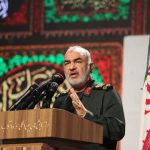The United Nations Support Mission in Libya (UNSMIL) announced that two parties constituting the Joint Military Commission (5+5) reached an agreement on permanent ceasefire at the conclusion of the fourth round of this path, which had continued for a whole week.
According to the UN Envoy, Stephanie Williams, both parties agreed on ordering mercenaries to get out of the country within three months, setting-up a joint operation room and a limited military force made up of regular military personnel.
Both military delegations agreed on classifying armed forces in order to integrate their personnel into the state’s institutions as well as the restructuring of forces responsible for securing oil complexes.
Williams said that the delegates of the Libyan National Army and the Government of National Accord asked the UNSMIL that the ceasefire deal be sent to the U.N. Security Council to be accredited and to ensure full and unconditional respect from all parties towards it. She pointed out that the UN Mission will send the agreement to the Security Council and that the international community should support Libyans in implementing the ceasefire.
It is expected that the joint commission will meet during the upcoming weeks in order to jump start the sub-committees responsible for unifying the military institution, cooperating in the field of terrorism-combating, integrating the armed personnel and monitoring the departure of the mercenaries as well as being responsible for the follow-up of security arrangements.
It is envisaged that the outputs of the Libyan military path (5+5) in Geneva are an advanced step towards creating a favourable atmosphere necessary for a new political process that will wind the Skhirat agreement, with focus on the Berlin process and the Cairo declaration concerning the Libyan crisis resolution.
Within this context, there are two ways that ought to be differentiated from one another. The first: the consensual approach between the military field representatives on a tactical level, which comes in the light of understandings regarding security arrangements in the upcoming political stage. These arrangements being based on power sharing and wealth distribution.
The security arrangements include the form and pattern of deployment in the centre of the country namely Sirte, which will likely be the new government seat within a comprehensive political framework. This aims at keeping it away from regional polarisation between the east and west of the country and safeguarding it from the militias’ power. This is to be done through the participation of joint police and military forces from both sides. The arrangements should also be linked to the economic sphere, regarding the restructuring of the oil complexes’ guards so as to allow a joint control and security administration. As for the strategic issues concerning the military sphere, it seems that they will be moved to the future, especially the issue of unifying the military institution, ending foreign presence, for what has actually been agreed upon is terminating foreign mercenaries, not the permanent foreign military presence.
Moreover, signs given by Williams about the continuance of the military path in parallel with the aforementioned preliminary stage are considered a positive mechanism on the way of creating a favourable atmosphere in dealing with dilemmas constituting obstacles before these main issues.
However, it is likely that this will require long-term procedures and arrangements that may take several years and will be judged in the light of the upcoming political process whether it will transfer the country to sustainable political stability or just a cycle within several and consecutive transitional stages that Libya witnessed during the past decade is yet unclear.
On the whole, it can be said that the military path outputs have accomplished a qualitative leap in the path of political and economic process arrangements.
It remains to be seen whether the comprehensive political dialogue will result in realising a qualitative leap concerning military issues in general. These issues are connected to the future of the political process in the post-preliminary stage, which will continue for eighteen months.
The results it may bring forth as a next step in the form of a permanent constitution are a parliament and an elected government.
On the operational level, it will depend on a number of initial tests such as success in ending the mercenaries’ presence in the country, the ability to stop manifestations of political and security chaos in a way that reinforces the invulnerability of the Libyan state, which was torn by conflict. These previous steps must be taken to be able to confront challenges and dangers in order to restore the state’s independence and sovereignty.












